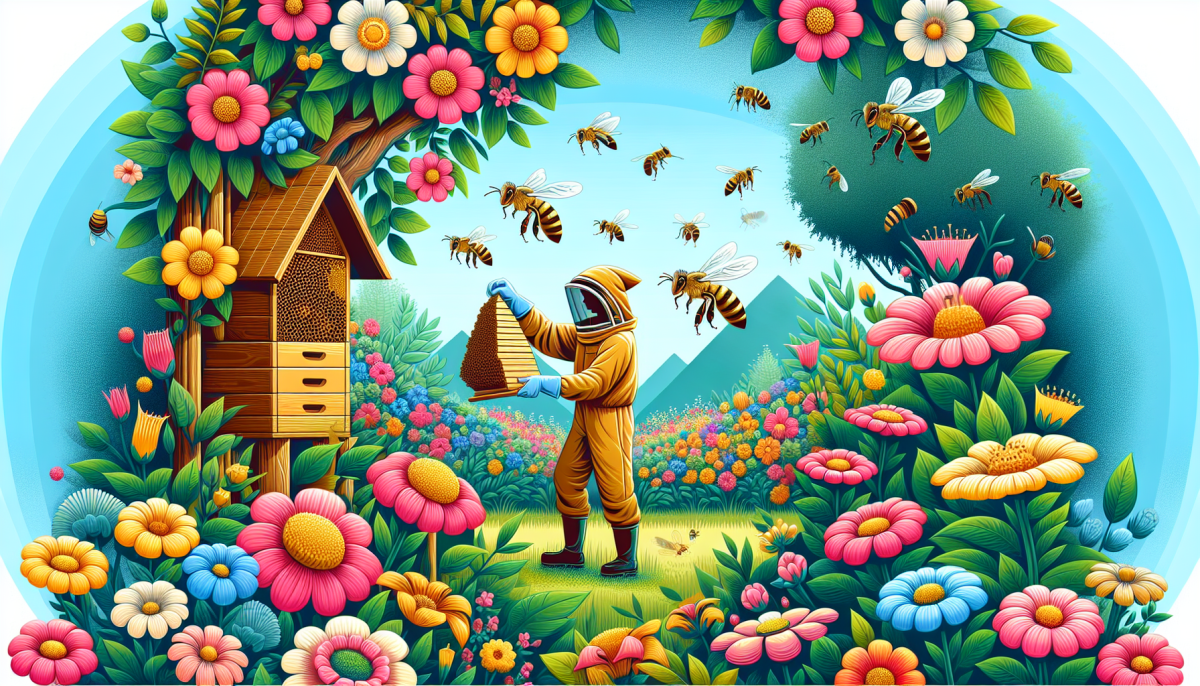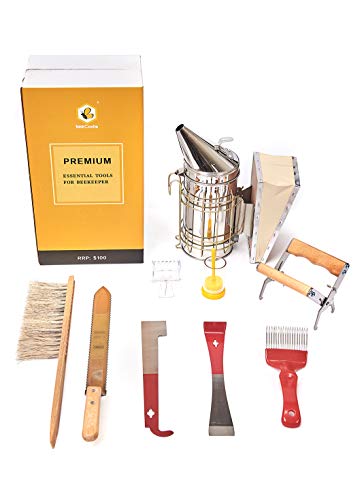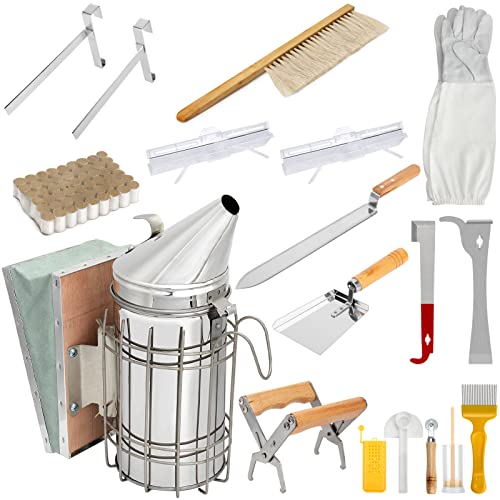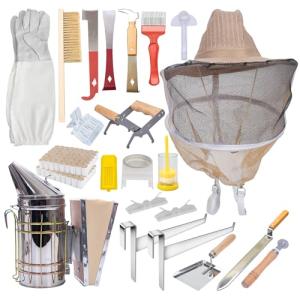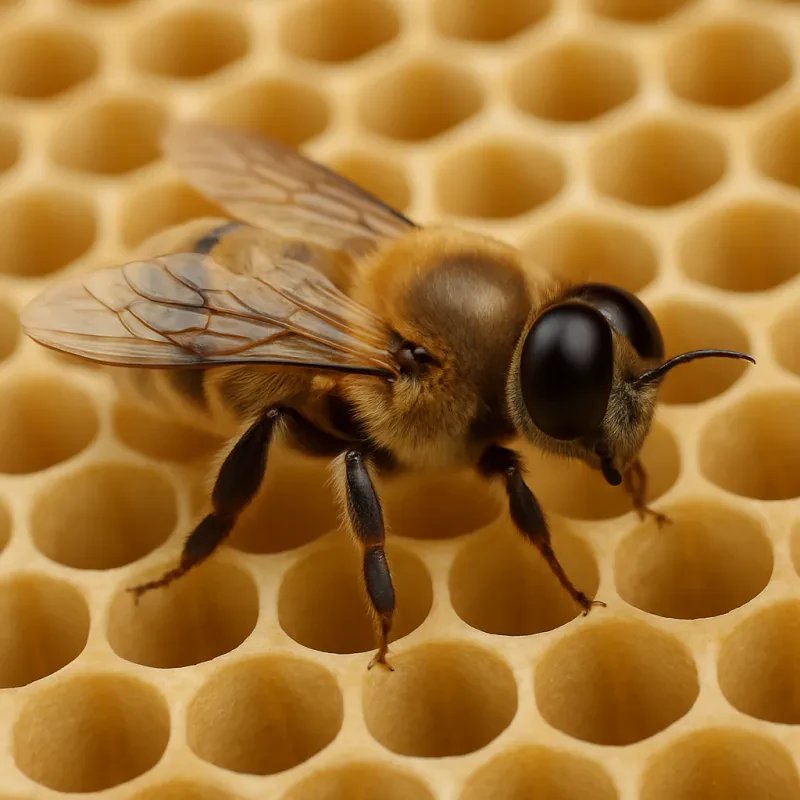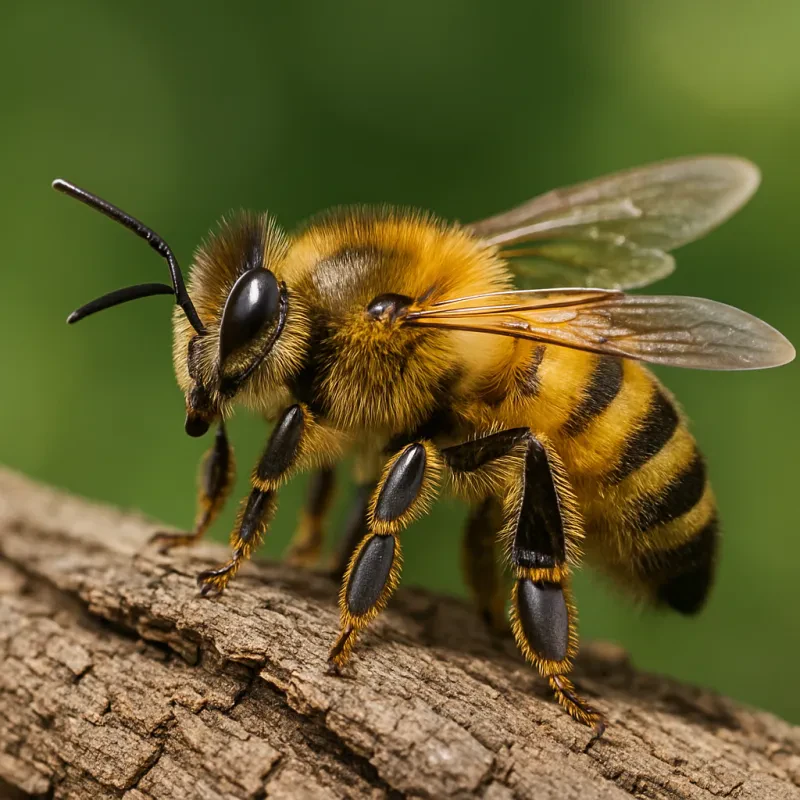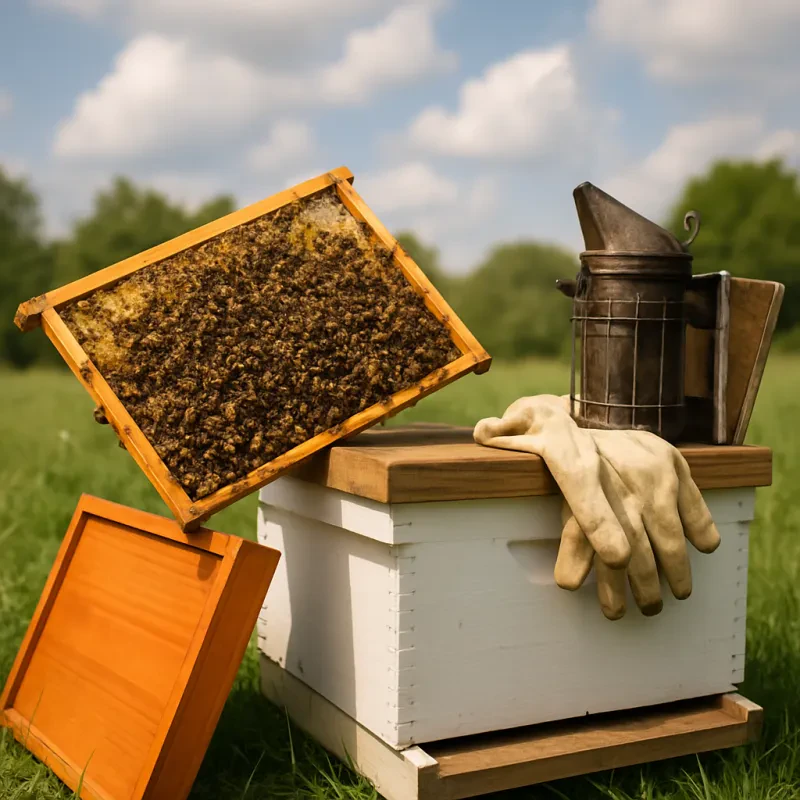When it comes to honey bee pest control, understanding the common pests that can disrupt your hives is key. There are a few sneaky culprits to watch out for, and knowing what they are can help you protect your buzzing friends.
One major pest is the Varroa mite. These tiny, parasitic mites latch onto bees and feed on their bodily fluids. They can weaken your hives and even spread diseases. Regular inspections can help you spot them early, so you can take action before they cause too much damage.
Another pest to keep your eyes peeled for is the small hive beetle. These little guys can invade hives and cause chaos, leading to reduced honey production and even hive collapse. Look for signs like dark, foamy messes within the hive; if you see it, it’s a good idea to act fast with some hive cleaning and pest management strategies.
Lastly, don’t forget about wax moths. They love to munch on the wax in your hives, damaging comb and weakening the colony. Keeping your equipment clean and properly stored can help keep these pests at bay, making it easier to maintain successful honey bee pest control.
Natural Remedies for Pest Control
When it comes to honey bee pest control, natural remedies can be a fantastic way to keep your bee friends safe and healthy. Many homeowners are turning to these eco-friendly approaches to manage pests without relying on harsh chemicals that might harm their hives.
One popular option is using essential oils. Oils like peppermint, tea tree, and neem can act as natural repellents. Just mix a few drops with water in a spray bottle and lightly mist around the hive. Not only will this help deter unwanted visitors, but the soothing scent can also create a calming environment for the bees.
Another effective method involves diatomaceous earth. This natural powder is made from tiny fossilized algae and can help control pests like ants and cockroaches that may invade your bee area. Simply sprinkle a thin layer around the hive but keep it away from the bees to ensure they don’t accidentally ingest it.
Companion planting is also worth considering. Planting herbs like basil, lavender, or marigolds near your bee hives can help repel pests naturally. These plants not only look beautiful but also provide additional food sources for your bees while keeping harmful insects at bay.
Lastly, maintaining a clean hive environment is crucial. Regularly inspecting and cleaning your bee boxes can help spot early signs of pests before they become a bigger issue. Simple practices like removing debris and ensuring good ventilation can create an unwelcoming setting for unwanted critters, ultimately supporting your honey bee pest control efforts.
Prevention Tips for Healthy Hives
Keeping your hives healthy is all about prevention. When it comes to honey bee pest control, there are some straightforward strategies you can use to protect your buzzing buddies. Here are some handy tips to get you started:
By following these simple strategies, you'll have a better chance of fostering a healthy environment for your bees. Remember, effective honey bee pest control starts with good practices and a bit of care!
When to Call the Experts
When it comes to honey bee pest control, there are times when you might be better off calling in the professionals. Sure, tackling minor issues yourself can be a rewarding experience, but some situations are best handled by experts who know what they’re doing.
If you notice a large swarm of honey bees making a home in your backyard, it’s a good idea to reach out for help. Swarming can be intimidating, and attempting to remove them yourself can lead to serious stings or injuries. Experts have the training and tools to safely relocate these bees with minimal fuss.
Another red flag is if you suspect a serious infestation that’s damaging your plants or property. The signs might include an unusually high number of bees, or they might be behaving aggressively. If you see that, don’t hesitate to call a pest control service. They can assess the situation and handle everything with care.
Lastly, if you're unsure about identifying the type of bees you’re dealing with, it's time to consult an expert. Proper identification is crucial in honey bee pest control, as some bees are protected and may require special handling. Professionals can determine the best course of action that keeps both your property and the bees safe.
